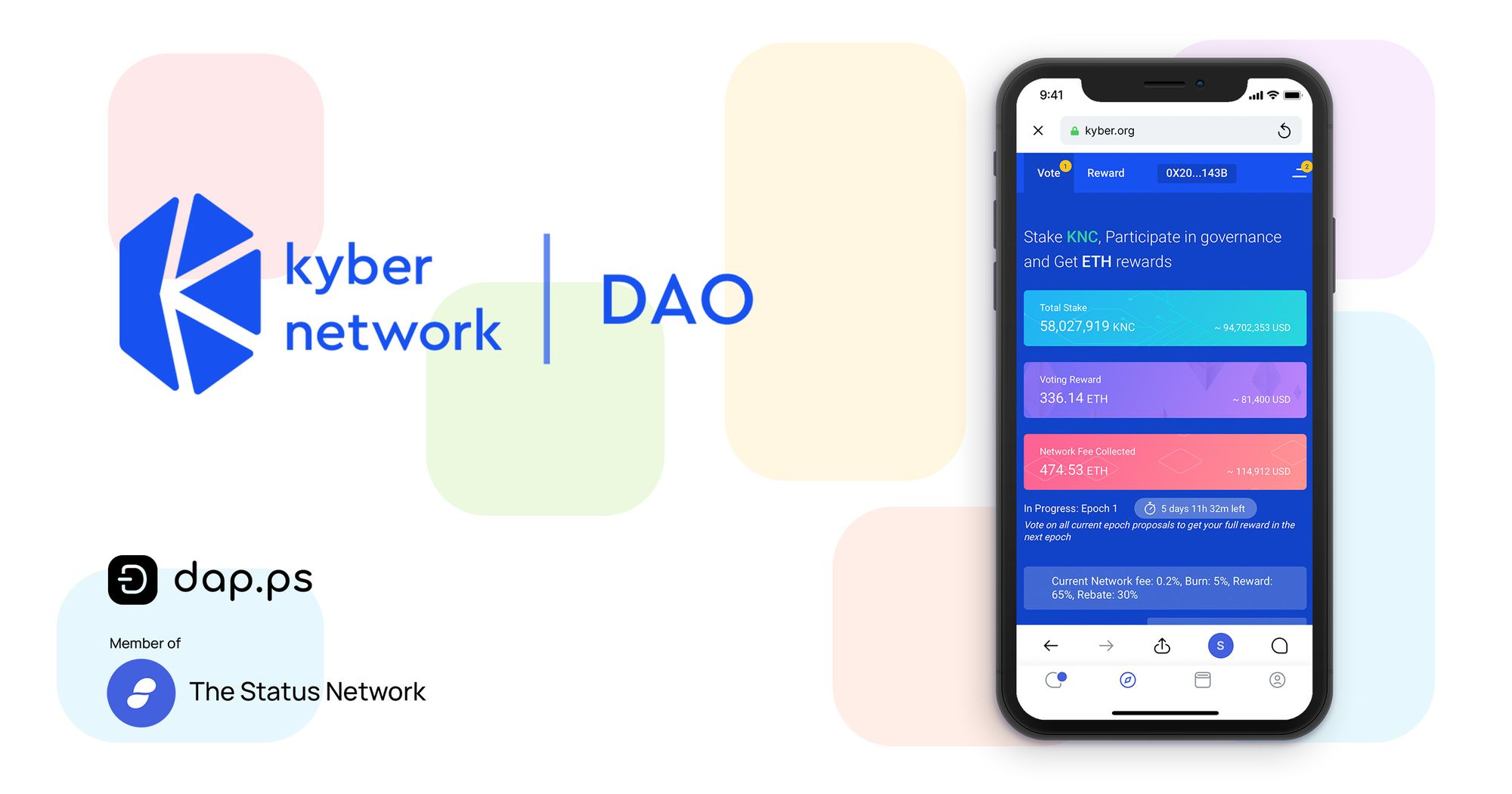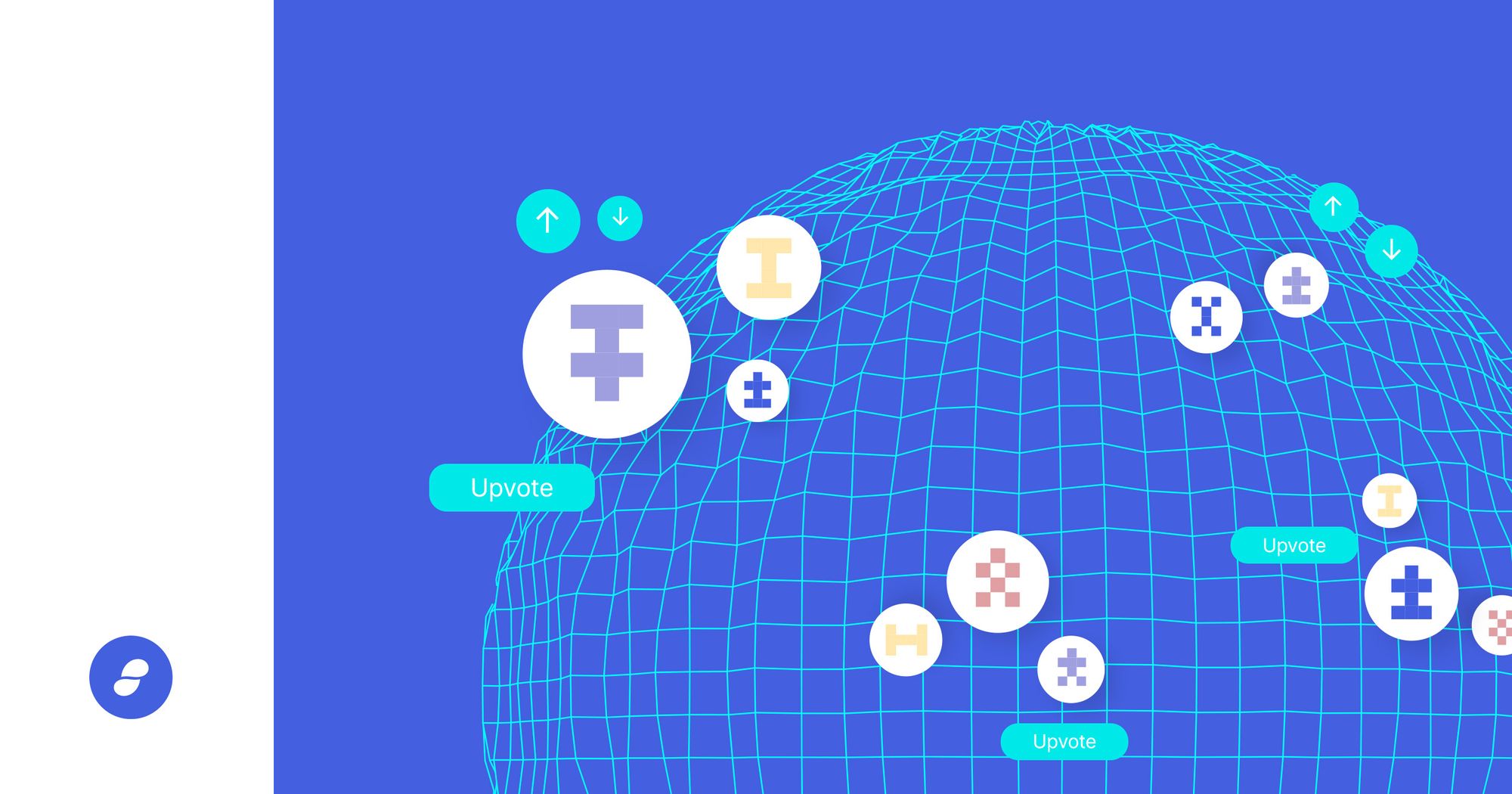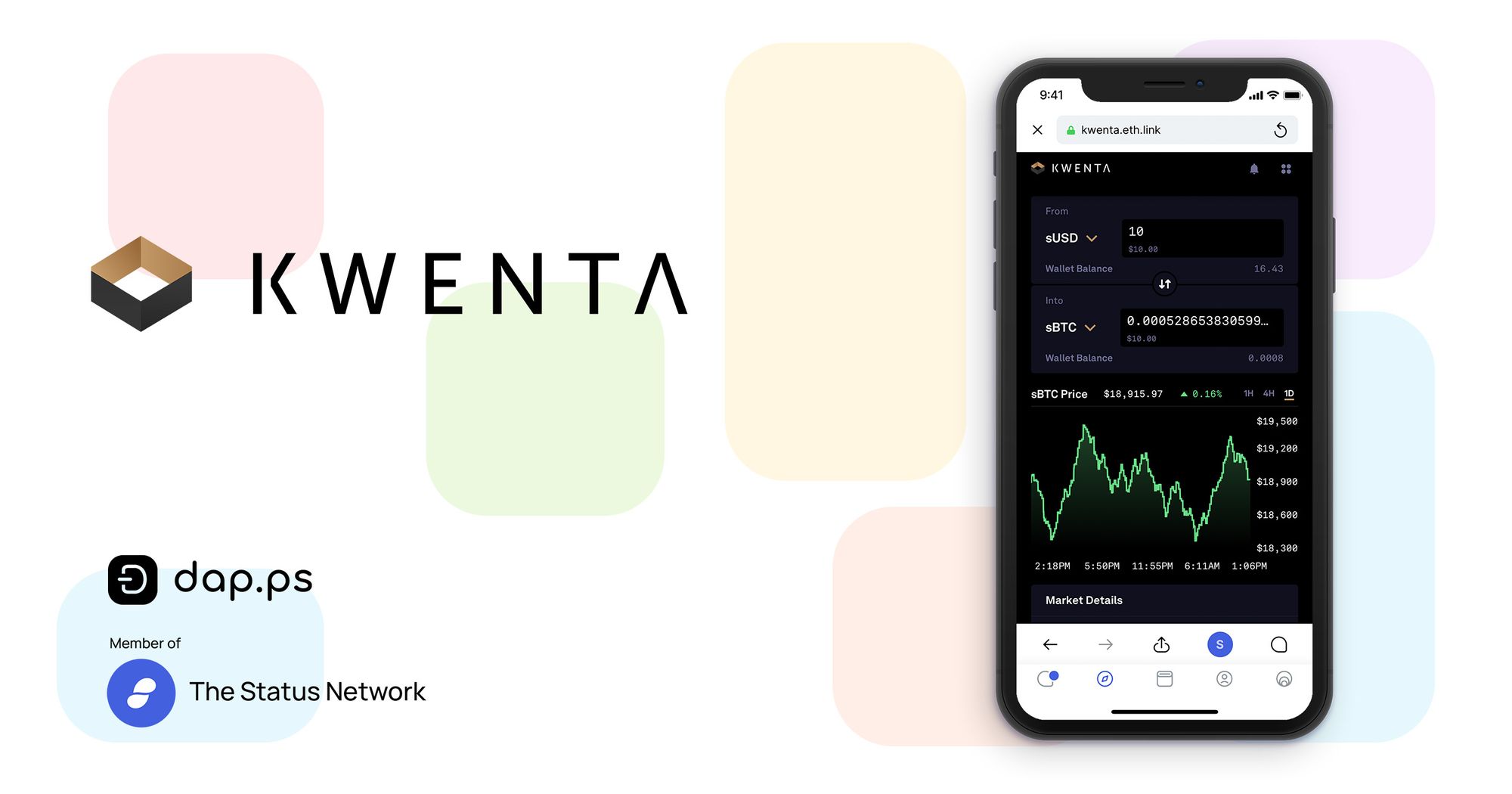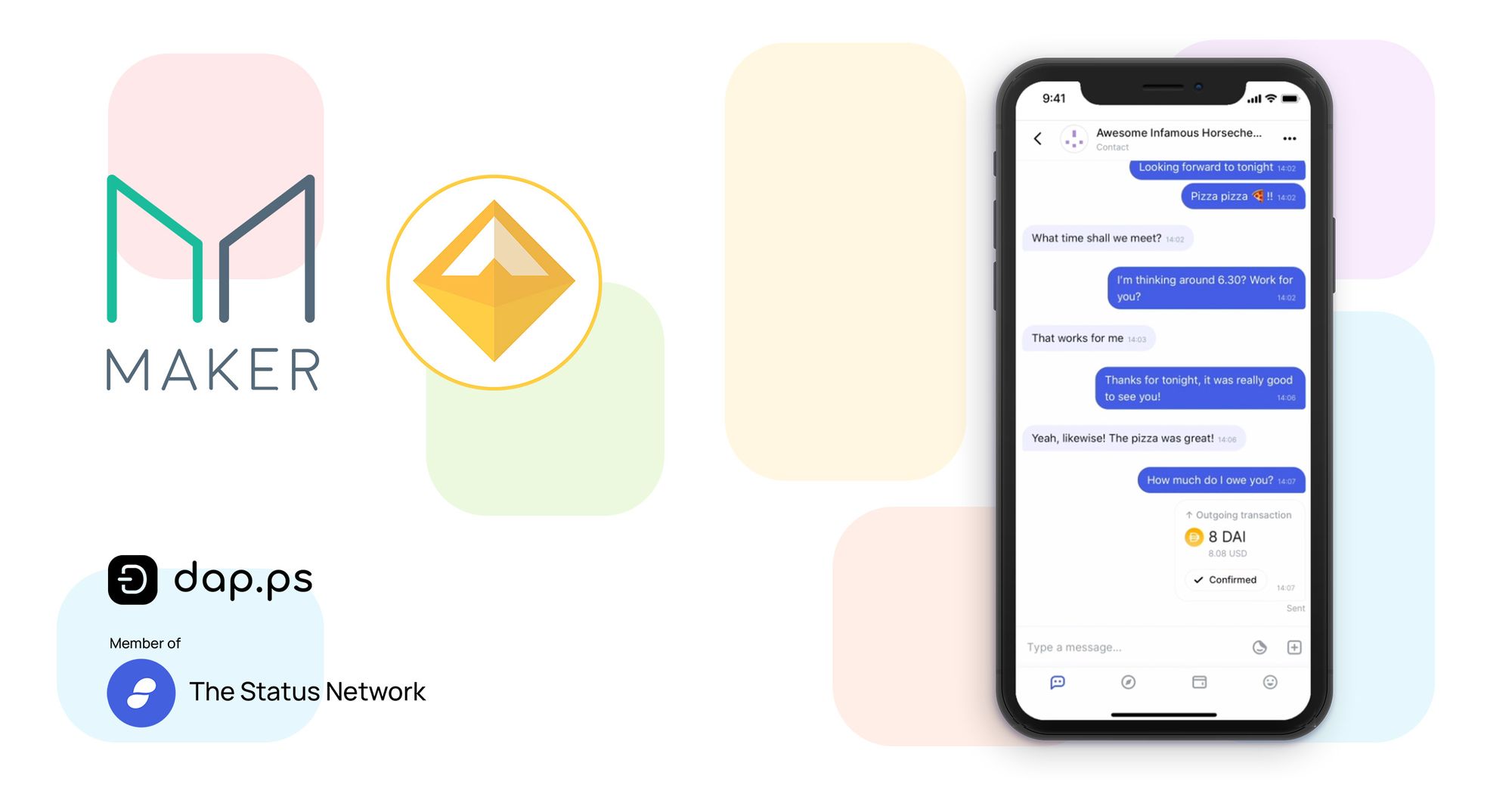KyberDAO and KNC Staking in the Status App


Kyber recently released their KyberDAO governance and rewards platform, Katalyst. This is a powerful governance tool that lets anyone participate in Kyber platform decision making and earn rewards for participating. Status is proud to provide a secure, integrated mobile wallet and dapp browser to let users stake KNC in KyberDAO and participate in governance, all from the convenience of a mobile device.
Staking is simple. Acquire KNC through a swap from ETH or ERC-20 tokens. In the Status App, use the Browser tab to find KyberSwap or another decentralized exchange. Swap ETH or tokens from your Status mobile wallet to KNC.
Next use the Browser tab to find KyberDAO. Make sure your Status mobile wallet address is correctly connected. On this governance page you can scroll down and find a Stake Now button, or navigate to the menu on the top right and find Stake.
Determine how much KNC you want to submit, authorize the transaction, and wait for the transaction to settle.
Now your KNC is staked, and when the next epoch begins, you may participate in proposal voting to earn staking rewards.
To earn rewards, you must have staked funds before the next “epoch”, or time period for voting begins. The current epoch ends Tuesday July 28 at 7am UTC. If you want to earn rewards, you need to stake KNC before then.
KyberDAO governance is split into epochs. An epoch is a segment of time when voting on governance proposals occurs. If a staker votes on each proposal in an epoch, they receive that epoch’s rewards. Rewards are scaled according to the value in KNC that’s locked up in an individual’s stake. Rewards come from transaction fees generated by the KyberSwap decentralized exchange.
Once the next epoch starts, you may participate in voting. Participants must vote on each proposal in an epoch to be eligible for rewards in the following epoch. That means that to vote in Epoch 2, you need to stake in Epoch 1, and if you vote on all proposals in Epoch 2, you will be rewarded in Epoch 3. This is done to ensure that stakers are invested and involved with KyberDAO governance.
When the KyberSwap decentralized exchange collects fees for swaps, those fees are distributed as rewards to governance participants. Rewards are distributed in ETH. At launch, the reward structure was deemed to be:
- 65% of fees collected go to staking rewards for KNC stakers
- 30% of fees collected go to reserve rebates which are used to incentivize liquidity pools and maintain a robust decentralized exchange
- 5% to buy KNC and burn the tokens to reduce supply
The first epoch contains a proposal for a different reward structure. These are the types of governance proposals that are crucial to maintain decentralized network autonomy and decentralization, while still working to maintain growth and stability of the project.
KyberDAO has been tuned to work smoothly in the Status mobile interface.
Status is a window into the larger Ethereum world, and combinations like Status and Kyber show exactly the power of how private, mobile communication, a mobile Ethereum wallet, decentralized exchange, and staking governance can work as part of an ecosystem.
Get Status and prepare for the next epoch on KyberDAO. Be part of the decentralized revolution and support your own privacy, autonomy, and decentralized projects that grow the space.
Kyber’s on-chain liquidity protocol allows decentralized token swaps to be integrated into any application, enabling value exchange to be performed seamlessly between all parties in the ecosystem. Using this protocol, developers can build innovative payment flows and applications, including instant token swap services, ERC20 payments, and financial DApps — helping to build a world where any token is usable anywhere. Kyber is one of the most used and integrated protocols in decentralized finance (DeFi), with over US$1 billion worth of transactions facilitated since its inception. Kyber supports over 80 different tokens, and powers over 100 integrated projects.
Install Status >>
Check out these DeFi Dapps dap.ps >>
*Disclaimer - This article was written for your entertainment, and the content is for informational purposes only. You should not construe any such information or other material as investment, financial, or other advice. Using decentralized financial tools does not come without risks and using Status is simply a portal to these tools - Status does not mitigate associated risks of said products.




